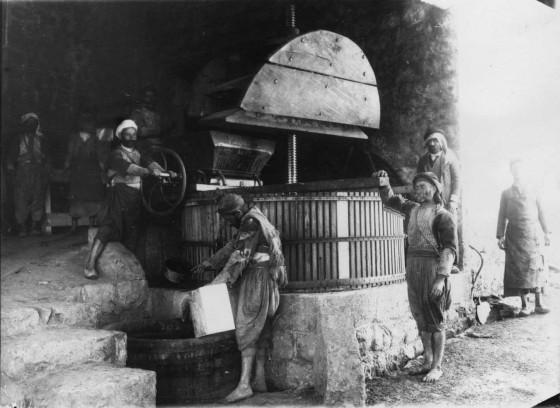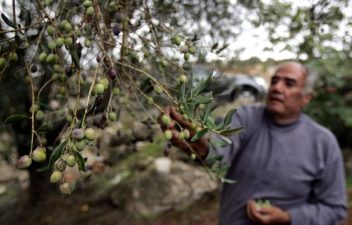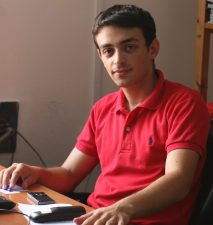 Jesuit brothers at the Ksara wine press in 1910: Lebanon’s oldest wine growing domain
Jesuit brothers at the Ksara wine press in 1910: Lebanon’s oldest wine growing domain
Following the footsteps of a wine trading tradition started by Phoenicians, modern Lebanese wine-making re-starts in 1857 when French Jesuit missionaries at Ksara (today the site of Château Ksara) introduced new viticulture and viniculture methods as well as new vines, from French-governed Algeria. Sixty years later the French civil and military administration that governed Lebanon between the wars created unprecedented demand for wine until 1975. This golden age for wine making in Lebanon subsequently declined when the country descended into a 15-year civil war, however it managed to pick up momentum afterwards.
Chateau Ksara in the Beqaa Valley has an incredible history: Ksara for example was the first place in the Middle East’s where an observatory was established as obsessive monks recorded rainfall and seismic activity.
The wine cellars are said to date back to the Roman period, situated in limestone bedrock in subterranean tunnels extending 2km, these were discovered by the Jesuits in 1898 and today bear silent witness to huge old bottles where the brothers kept their brandy (and probably drunk themselves silly).
Finally in 1973, the Jesuits sold the winery to a consortium of Lebanese businessmen after the Vatican encouraged the sale of all profitable activities. Today Chateau Ksara is the oldest and biggest wine producer in Lebanon and the most visited winery, attracting some 70,000 visitors per year. It also produces the Middle East favorite – arak.
Here is a little clip showing the magical story behind the caves of Chateau Ksara.
[youtube http://www.youtube.com/watch?v=zN_wwIITJCg]




